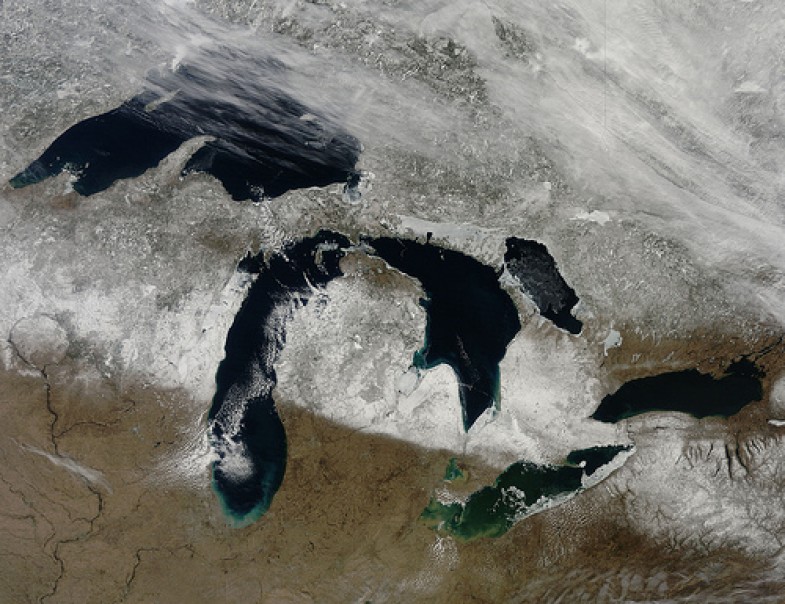The recent revision of the 40-year-old Great Lakes Water Quality Agreement (see New York Times blog) to address on-going international pollution problems is an important recognition of the continued threats facing the world’s largest source of freshwater. It also highlights systemic problems in our conventional approaches to protecting our common heritage.
Despite decades of well-meaning top-down technocratic efforts, the Great Lakes remain troubled. Asian carp and more than 100 other invasive species threaten the ecological balance of the Lakes. Many companies are allowed to pollute with near-impunity because governments at all levels are loathe to intervene. An algae bloom last year was the worst ever, caused in part by agricultural pollution that no government is willing to effectively tackle. The impacts of climate change loom on the horizon and large cities over-pump groundwater. This reflects a vision for the Great Lakes that is short-term and overly market-focused.
If we are to protect the Great Lakes for posterity, a different vision is needed. We must charge national and international bodies with a true mandate for sustainability. Pending before the International Joint Commission is a petition to adopt the Public Trust Doctrine as a guiding paradigm for the lakes, which would signal a precautionary, rather than reactive, approach to stewardship. This proposal reinforces the view that the lakes are a commons belonging to all, rather than a commodity for sale to the highest bidder.
Recent efforts to involve indigenous peoples in decisionmaking are a step in the right direction. Important next steps include giving local communities a true voice in deciding who is allowed to withdraw and pollute Great Lakes water, which insures that those most affected by pollution have a say. These efforts require more than “stakeholder” meetings. They require re-focusing governance at the local level.
Managing the Great Lakes is complicated – international, national, state, provincial, local and tribal governments all have a role. While strengthening the Agreement is a positive step, it must be accompanied by a recognition that the Lakes need more than a “business as usual” solution.
Jack Tuholske is a professor at the Vermont Law School, Director of its Water and Justice Program.







